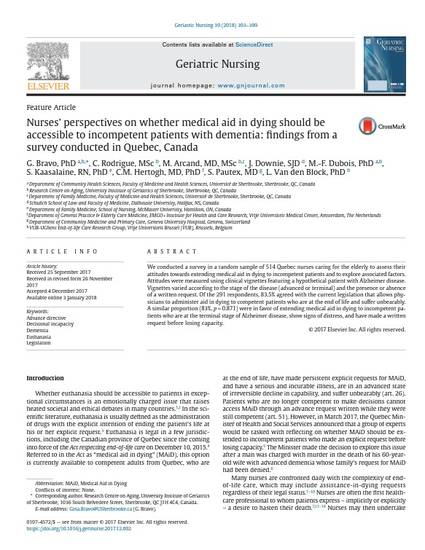
- Advance Directive,
- Decisional Incapacity,
- Dementia,
- Euthanasia,
- Quebec,
- MAiD,
- Research Survey
We conducted a survey in a random sample of 514 Quebec nurses caring for the elderly to assess their attitudes towards extending medical aid in dying to incompetent patients and to explore associated factors. Attitudes were measured using clinical vignettes featuring a hypothetical patient with Alzheimer disease. Vignettes varied according to the stage of the disease (advanced or terminal) and the presence or absence of a written request. Of the 291 respondents, 83.5% agreed with the current legislation that allows physicians to administer aid in dying to competent patients who are at the end of life and suffer unbearably. A similar proportion (83%, p = 0.871) were in favor of extending medical aid in dying to incompetent patients who are at the terminal stage of Alzheimer disease, show signs of distress, and have made a written request before losing capacity.

https://doi.org/10.1016/j.gerinurse.2017.12.002